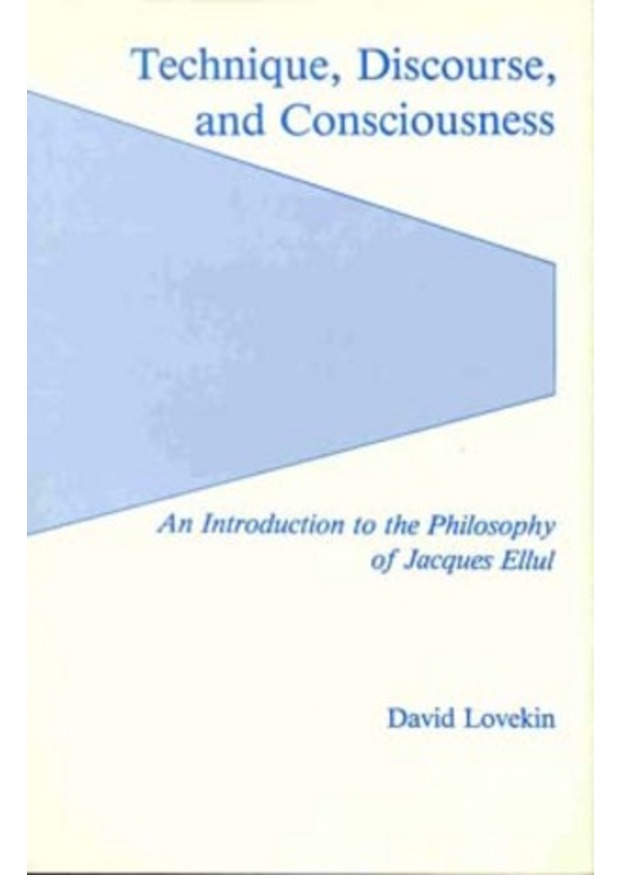An Introduction to the Philosophy of Jaques Ellul
Technique, Discourse, and Consciousness: An Introduction to the Philosophy of Jacques Ellul examines contemporary French thinker Jacques Ellul's seminal analysis of how technology manipulates and impoverishes modern thought, culture, and language. In this first book-length philosophical study, Lovekin explores Ellul's writing as both a philosophy of technology and a philosophy of culture, locating Ellul's thought in relation to G . W. F. Hegel and Ernst Cassirer. The central term in this examination is the symbol, which Ellul defines as the means and mode of interaction between consciousness and its world.
More and more in our present world, technology monopolizes the processes by which symbols are generated and disseminated. Ellul uses the word "technique" to describe the totalizing pretensions of modern technology, which supersedes its role as instrument of human thought and aspires to become its shaper and keeper.
Technique's strategy exalts the image with its static iconic powers and degrades the work with its subversive powers of dialectic and metaphor—a strategy quite evident in the icons of television, politics, and commonplace life. Ellul carries his critique to a deeper level and sees in technology's propagation of images a will to power: the creation of a rationality permitting no alternatives and the insertion of this rationality into the world of natural givens, where it remains outside the purview of critical examination. Requisite in the life of consciousness is the ability to distinguish between the made and the not made, between consciousness or preconsciousness and the objects for that awareness and their resulting mediations. Ellul argues that in a technological society the distinctions between the natural and the artificial collapse, as consciousness no longer gauges and determines the extent of its symbolizations, its techniques. A free consciousness stands before the world, the object, and the construction or symbol as others, as limitations for consciousness.
Lovekin shows that Ellul's readers, typically, do not fully grasp technology as a will to power and do not attempt to grasp the totality of his work—some forty books and more than eight hundred articles. All of this work converges in the notion of the symbol and language, in a necessary dialectic between the image and the word. In the world of technique the word of technique is the cliche. As the word is reduced to the image, as the meaningful collapses to the here and now, as the natural order becomes the technical order, language stutters. Conceptual thinking cut loose from powers of paradox, from metaphorical expression and understanding, finds utterance only in the noncontradictory Aristotelian logic, in a truth isolated from cultural time and process. The metaphor, arising in dialectical narration in which cultures are produced and sustained, is supplanted by the cliche. The true becomes the new; progress obviates history, and repetition replaces memory. The technical society, a clichegenic society, is without place or time, without a sense of origins or story.













